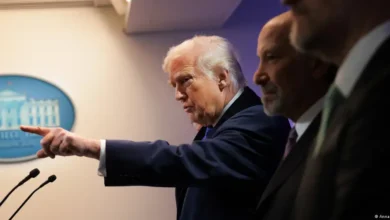
- As the UN celebrates its 80th anniversary this year, the challenge of reforming and revitalizing multilateralism will only grow
- In redefining its own role, India is helping to reshape the very nature of global cooperation.
In 2025 the United Nations marks the 80th anniversary of its creation in 1945. Established in the aftermath of the second world war, the UN was created with a mission of maintaining peace and security, and promoting international cooperation, with the hope it could help prevent another devastating global conflict.
In September 2023, as world leaders convened in New York for the UN General Assembly amid global polarization, India made a defining move — calling for the African Union’s inclusion as a permanent member of the G20 and within weeks, the proposal was adopted.
It was not merely a diplomatic gesture but a reflection of India’s growing role as a bridge-builder in international affairs—an evolution from being a participant to becoming a pivotal influencer in global governance.
As the United Nations marks its 80th anniversary, India’s ascent within the institution stands out for its pragmatic, inclusive, and balanced approach. In an era when multilateralism faces mounting strain, India has emerged as a credible actor—anchored in delivery rather than declarations—advocating for fairness while fostering cooperation across geopolitical divides.
India’s credibility rests on action. During the COVID-19 pandemic, its Vaccine Maitri initiative delivered doses to nearly 100 countries, transforming solidarity into tangible support. From humanitarian relief in Nepal and Türkiye to development assistance in Africa and the Pacific, India’s steady engagement has earned it genuine global goodwill.
In climate diplomacy, India has maintained a nuanced balance—championing equity through the principle of common but differentiated responsibilities while setting ambitious goals such as achieving net-zero emissions by 2070. Collaborative efforts like the International Solar Alliance, co-founded with France, showcase India’s ability to turn critique into constructive leadership.
Partnerships are central to this approach. The India–UN Global Capacity-Building Initiative, for example, focuses on practical cooperation in areas like digital infrastructure, health systems, and food security. Distinct from traditional aid, this model emphasizes South-South cooperation—driven by shared learning, local ownership, and co-creation rather than dependency.
India’s balanced diplomacy is most evident in its response to the Ukraine conflict. Upholding principles of sovereignty and dialogue, India has maintained constructive relations with both Russia and the West. This nuanced position—firm in principle, flexible in execution—has reinforced its credibility as a stabilizing force and a bridge between polarized blocs.
During its 2021–2022 tenure on the UN Security Council, India’s leadership of key committees on counterterrorism and sanctions underscored its preference for practical, measured diplomacy over theatrics. Consistency and balance have become New Delhi’s trademarks at the UN.
From its post-independence advocacy for the Global South to its current influence on global decision-making, India has transformed its identity into meaningful impact. As calls for UN reform and renewed multilateralism grow louder, India’s approach offers a roadmap: leadership through delivery, partnerships built on equality, and diplomacy grounded in credibility.
In redefining its own role, India is helping to reshape the very nature of global cooperation.












